
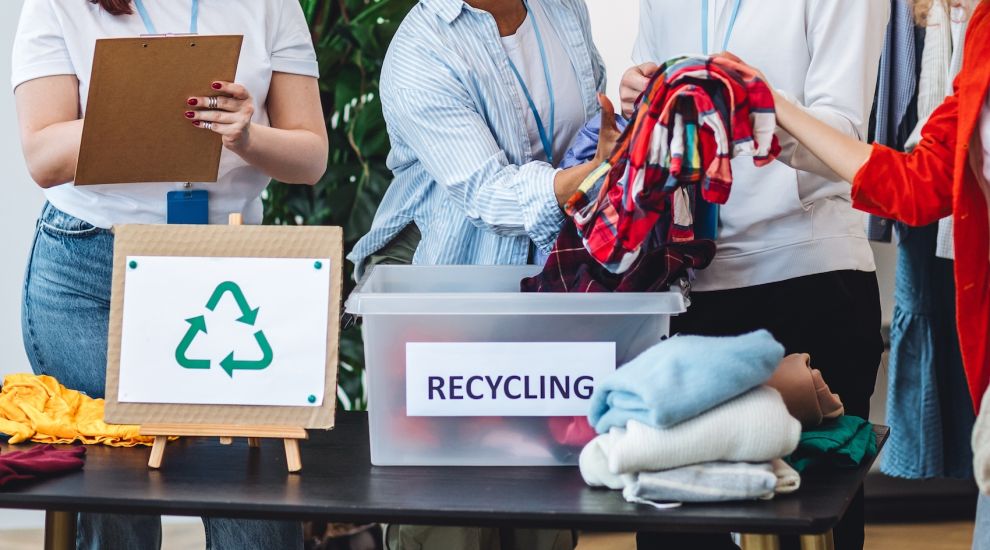

As more islanders embrace second-hand shopping and sustainable choices, Express set out to explore how these habits are reshaping the local economy and culture…
A new retail strategy recently set out plans to encourage “circular economic models” and to bring in “policies that foster repair, sharing, resale”.
A circular economy replaces the traditional 'make, use, dispose' model with one that keeps materials in use for as long as possible.
It encourages repairing, sharing, and rethinking consumption to minimise waste and the environmental impact caused by consumerism.
Express took a look at the extent to which Jersey is moving in that direction...
Plans to revitalise St Helier’s retail landscape were laid out in a new strategy published last month, which also set out the government's ambitions to create an “environmentally sustainable” sector.
The strategy aims to support the local economy while reducing imports and aligning with global best practices in circular economic models.
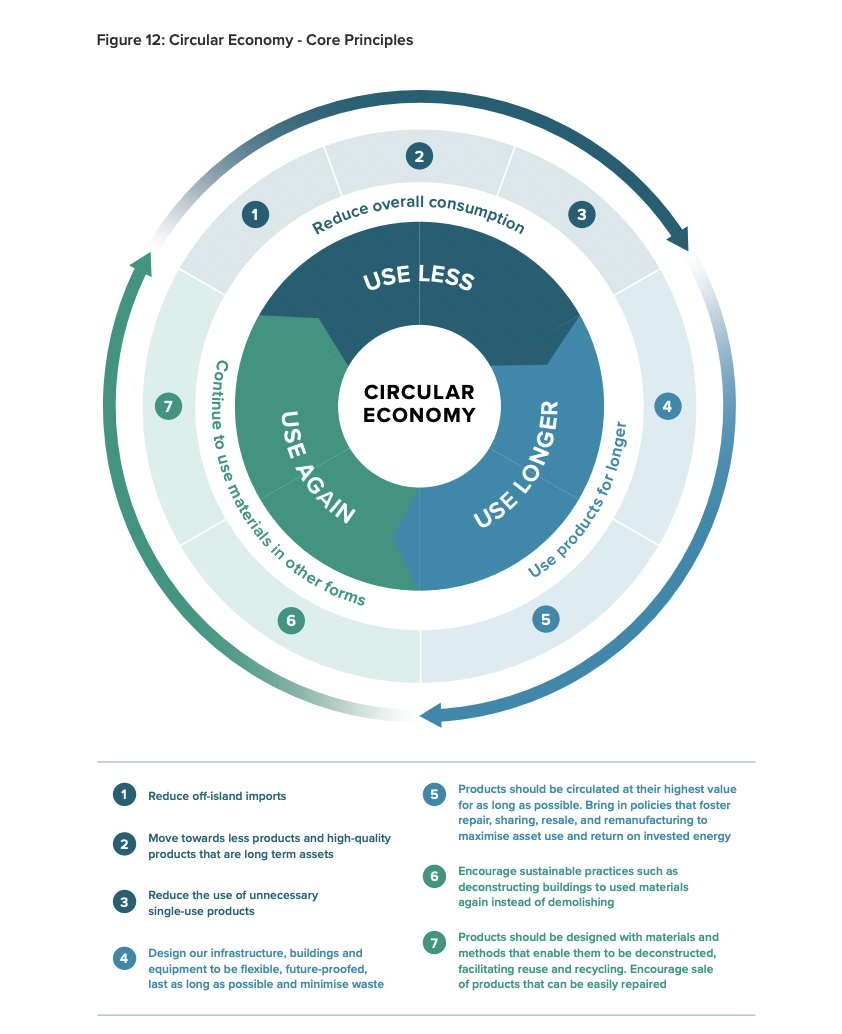
Pictured: The roadmap highlights the importance of circular economic models and calls for policies that promote repair, sharing, and resale.
Drawing inspiration from initiatives like Selfridges’ Reselfridges campaign – which aims for nearly half of its customer interactions to involve resale, repair, rental, or refills by 2030 – the Future Fit Retail Roadmap encourages businesses to innovate and take the lead in reducing their environmental footprint.
But can second-hand goods really take centre stage on the high street? And how deeply are islanders embracing a culture of reuse and repair?
Amanda Berry, manager of Acorn Reuse, has noticed a steady rise in demand since the shop opened in 2018.
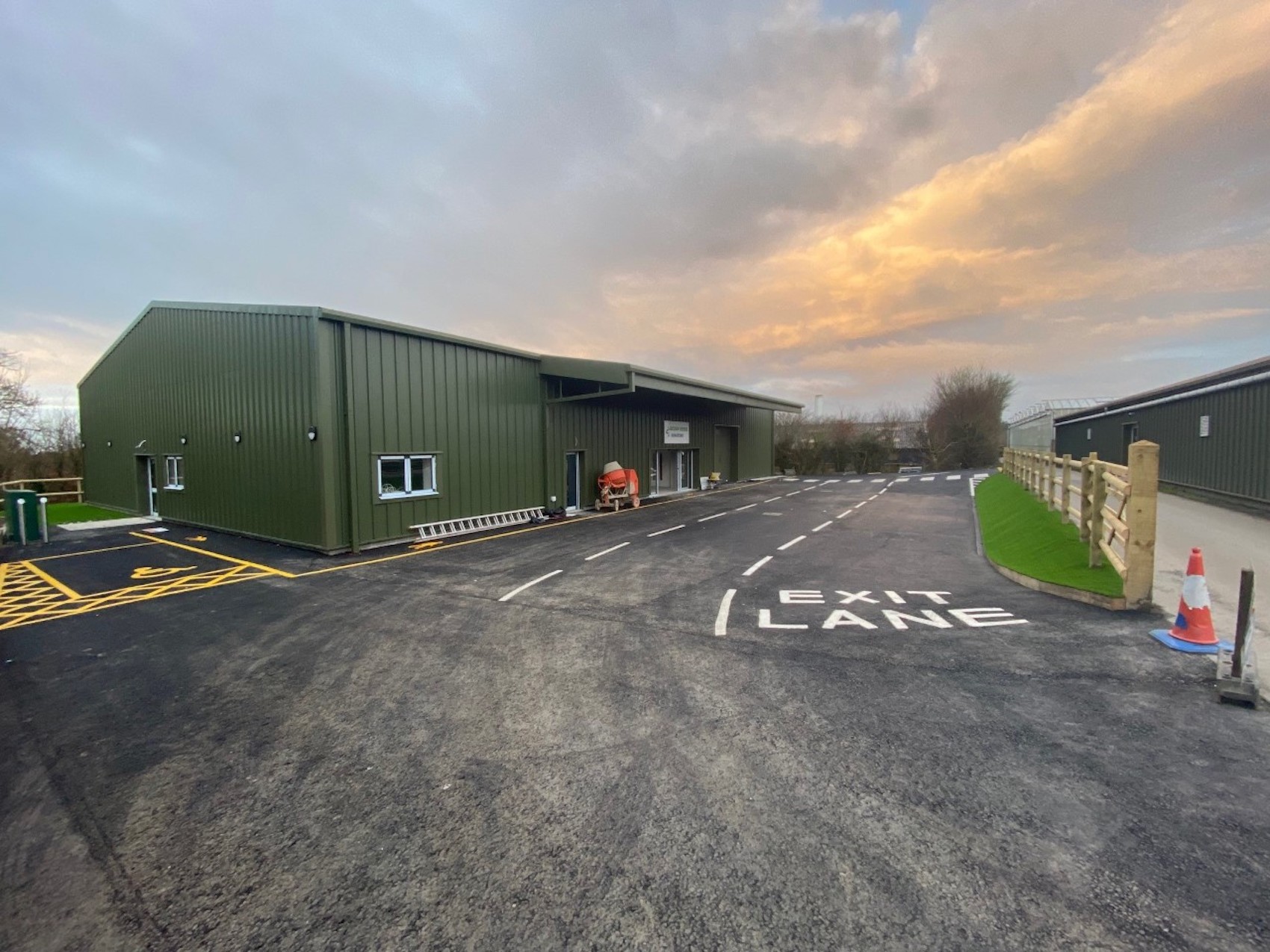
Pictured: Acorn Reuse provides work and training opportunities for islanders who have a disability or long-term health conditions.
“Recently, we’ve seen an increase in clothing sales, which was our biggest earner last year,” she said.
Amanda attributes the trend to environmental awareness and the cost-of-living crisis, which has led more people to seek affordable options.
“Buying second-hand is increasingly popular with young people,” she noted, adding that the stigma once attached to pre-owned goods is fading thanks in part to social media influencers and TV shows promoting repair and upcycling.
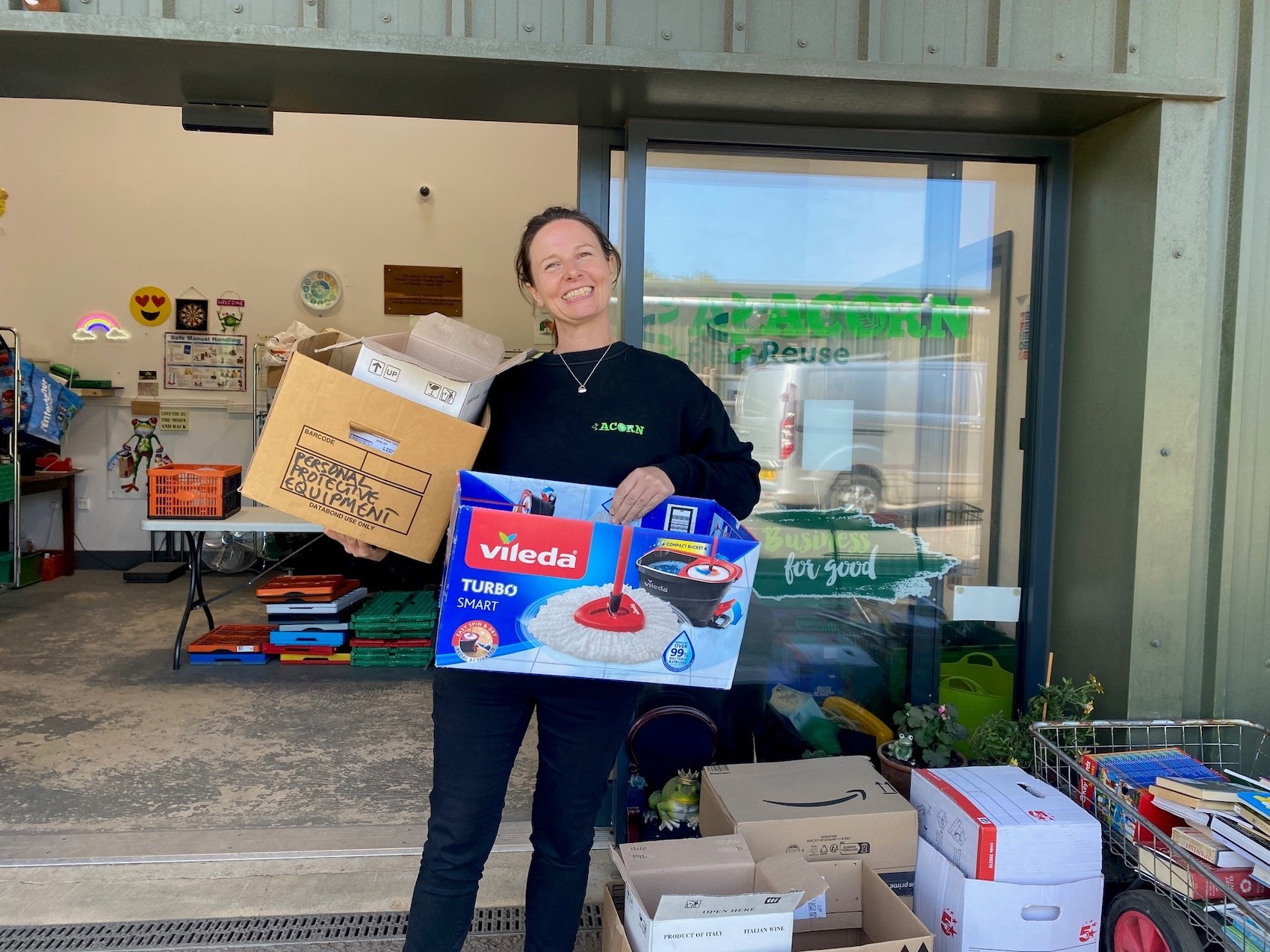
Pictured: Acorn Reuse manager Amanda Berry believes that the stigma once attached to pre-owned goods is fading.
One such influencer, Georgina ‘George’ Cook (@awomancalledgeorge), has previously spoken with Express about the appeal of second-hand shopping as both budget-friendly and environmentally conscious.
“I like the idea of the charity shopping circular economy,” she said.
“You can find a jumper for £3, enjoy it, and then donate it back.
“It gives peace of mind knowing you’re not contributing to fast fashion’s waste or exploitation.”
Beyond the environmental and financial benefits, George sees preloved fashion as a way to express her creativity, which she rediscovered after stepping away from the pressures of corporate life.
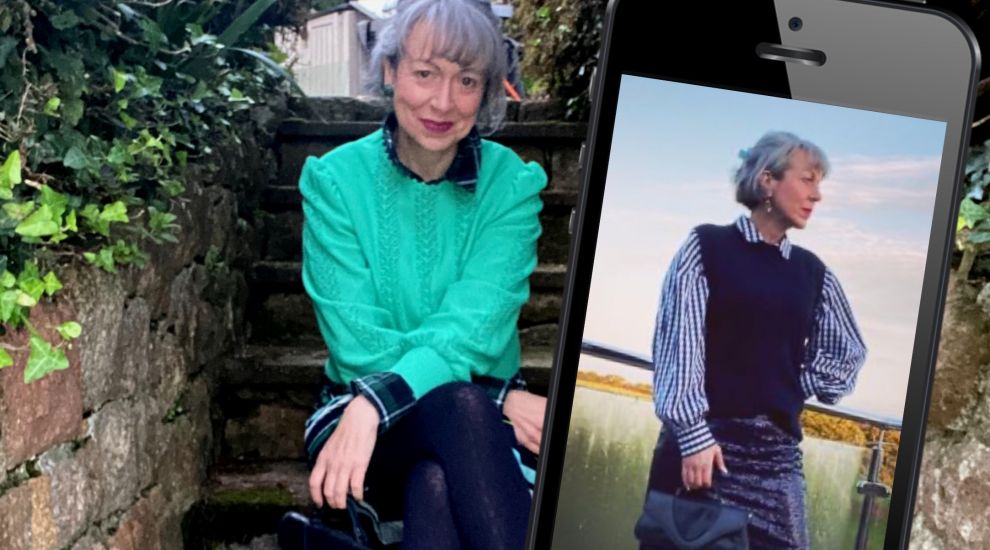
Pictured: Georgina ‘George’ Cook shares her fashion finds with her 180,000 followers on social media.
Sharing her finds on Instagram and TikTok – where she’s built a community of over 181,000 followers – George highlights not just the affordability of second-hand clothing but also the joy of experimentation.
“You can take more risks with what you buy if you are only spending a couple of quid,” she said.
“You can try something different, and have lots of experimental fun.”
George’s journey into preloved fashion has also become a means of connecting with others.
“There is a massive online movement with charity shopping, with thousands of people sharing the gems they’ve found,” she added.
“It’s great for your well-being; it makes you feel so good that you’re part of this family that seems to be growing.”
Repair services are also gaining traction.
Nigel Crespel runs The Repair Shop Jersey, where he helps to get small domestic appliances back in working order.
He described a “fantastic shift” towards repairing instead of replacing.
“People are becoming more conscious of their impact on the environment and are taking steps to reduce waste,” said Nigel.
"By fixing items, people are not only saving money but also contributing to a more eco-friendly lifestyle.
"This movement is often referred to as the 'right to repair,' and it's encouraging manufacturers to make products that are easier to fix.
"It's a win-win for both consumers and the environment."
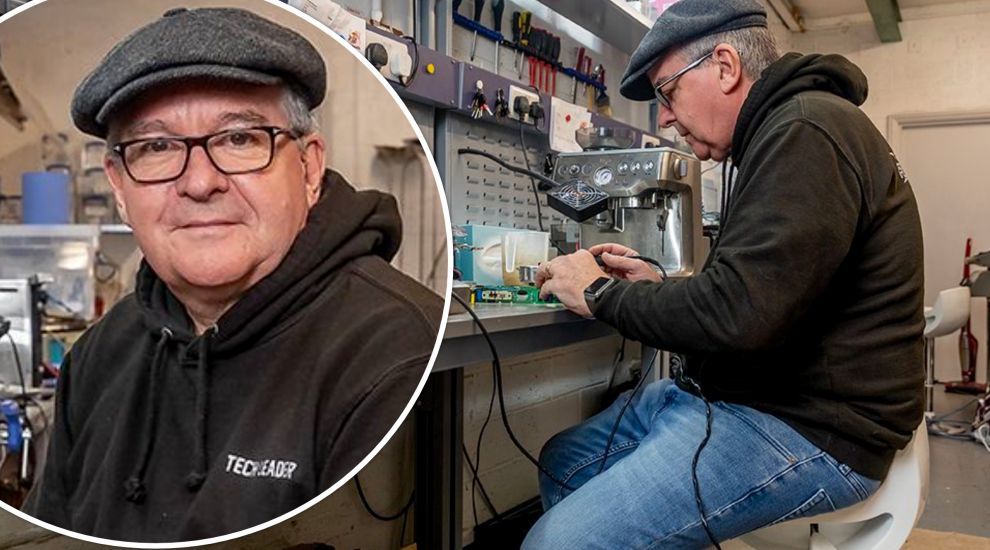
Pictured: Nigel Crespel is the owner of The Repair Shop Jersey.
Vacuum cleaners are his most common item, but he handles everything from coffee machines to vintage jukeboxes.
He envisions repair services becoming a key feature of Jersey’s high streets, creating jobs and supporting the local economy.
He said: "As people and businesses become more environmentally conscious and look for ways to reduce waste, the demand for repair services is likely to increase.
"This shift aligns with Jersey's broader economic and environmental goals, as outlined in various initiatives and strategies aimed at creating a sustainable and innovative economy.
"Repair services can contribute to the local economy by creating jobs, supporting small businesses, and reducing the need for imports.
"Additionally, promoting a culture of repair can help preserve valuable resources and reduce the environmental impact of discarded items."
Nigel praised The Repair Café Jersey, which allows islanders to have items fixed for free, as a prime example of this movement in action.
“It’s fantastic to see people embracing repair culture and challenging the throwaway mentality,” he added.
There are now three repair cafés in the island.
The first was founded in St Brelade in 2020, followed by Grouville in 2022, and a town branch in in 2023.
Spearheaded by Max Livesey and Simon Langlois, with input from Guernsey Repair Café founder Andrew Munro and support from Constable Mike Jackson, the cafés invite visitors to bring broken items and work alongside specialists to repair them.
The initiative also hopes to build people's confidence to tackle repairs themselves in the future – helping to break the cycle of replacing items unnecessarily.
Tailor Antonella Pastorelli, who runs Clothes Sense, sees steady demand for alterations like hemming and zipper replacements.
She said: "I bought the shop only three years ago so I can't say historically what has happened over the years, but I don't think there has been a great change in the three years that I have been at the helm as we have been as busy as ever with a constant flow of clients."
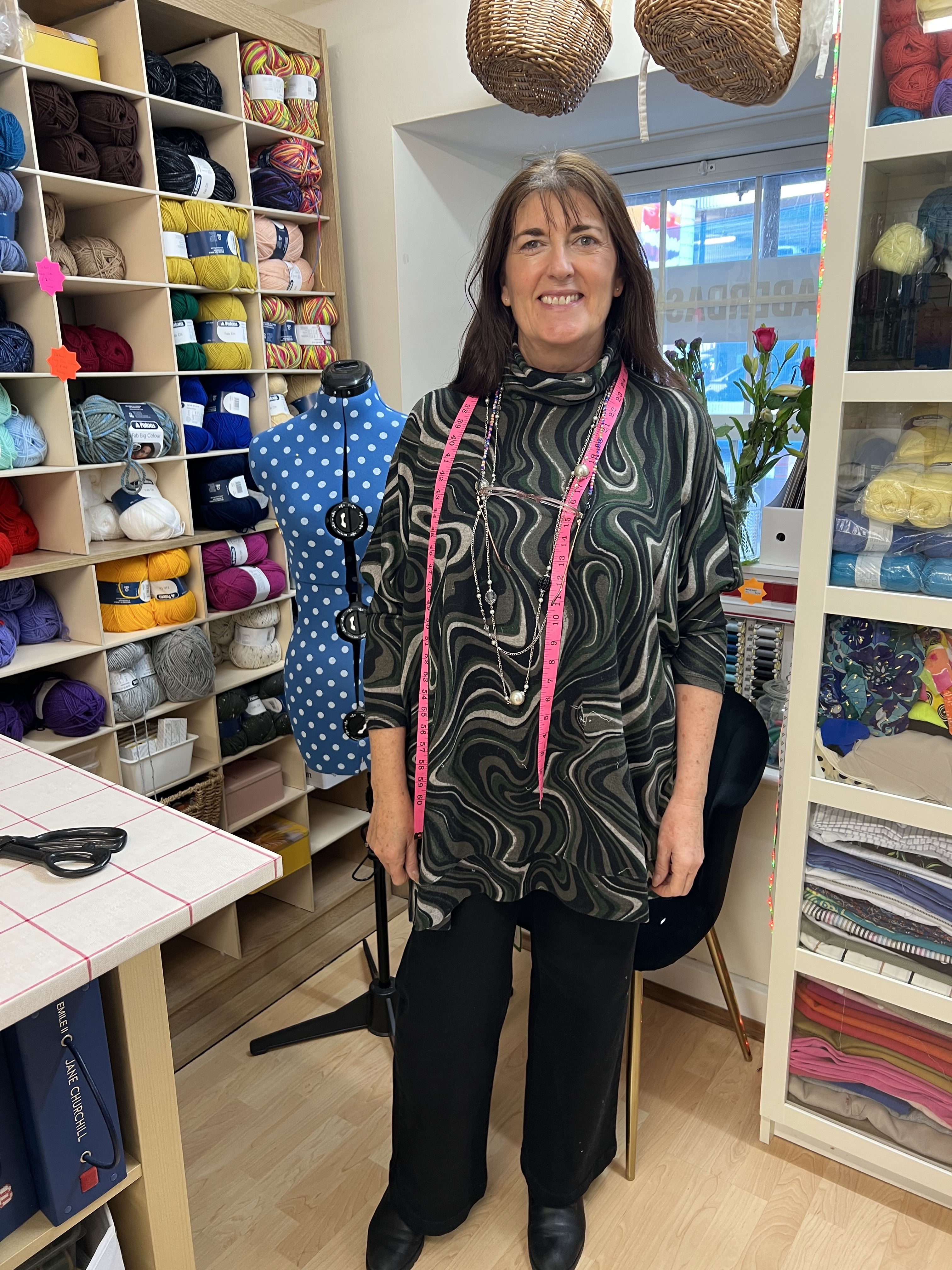
Pictured: Antonella Pastorelli runs the Sand Street-based Clothes Sense.
She noted a modest increase in customers altering charity shop finds – but added that many still prefer new garments, particularly for events like proms and weddings.
“It’s such a shame because we’ve seen some smashing secondhand prom dresses bought for just a few pounds,” she said.
Antonella is optimistic about the future of secondhand fashion, but warns of a looming skills gap threatening the longevity of the trade.
“If tailoring services are to thrive, we need to address the shortage of experienced seamstresses,” she said.
The growing popularity of secondhand boutiques also signals a potential revival for Jersey’s high street.
Businesses like Sister2Sister and Quirky Retro have previously spoken with Express about how they aim to redefine shopping experiences by blending sustainability with community.
View this post on Instagram
Siobhan Ramskill, owner of Sister2Sister, has said she has received an “overwhelming” response since opening in June 2023.
Specialising in high-quality pre-loved designer items, Siobhan sees her shop as more than a retail unit but as "a space where fashion, sustainability, and human connection come together".
“It’s about more than just buying and selling,” said one customer.
“There’s a real sense of community. The owner knows us by name and always goes the extra mile.”
Meanwhile, Quirky Retro Vintage opened in October under the ownership of brother-and-sister duo Nate and Sophie Quinlan, and Sophie's fiancé Ethan Rosseau.
Sophie explained that the idea of starting a vintage shop together came about after "wanting to fulfil a dream we've all shared for years".
"The name 'Quirky Retro' uses our initials [Quinlan and Rosseau] and speaks to our brand, promoting individuality through vintage style," she explained.
"Ethan and I first came up with the idea for this business back when we were in University together in Portsmouth.
"We worked for a small vintage shop run by a lovely older gentleman who took us under his wing and mentored us both, knowing that one day, we wanted to follow in his footsteps and create a successful vintage store.
"Nate and I have been talking about starting a company together for as long as I can remember, and when Ethan and I brought our business idea to him, he eagerly joined the project."
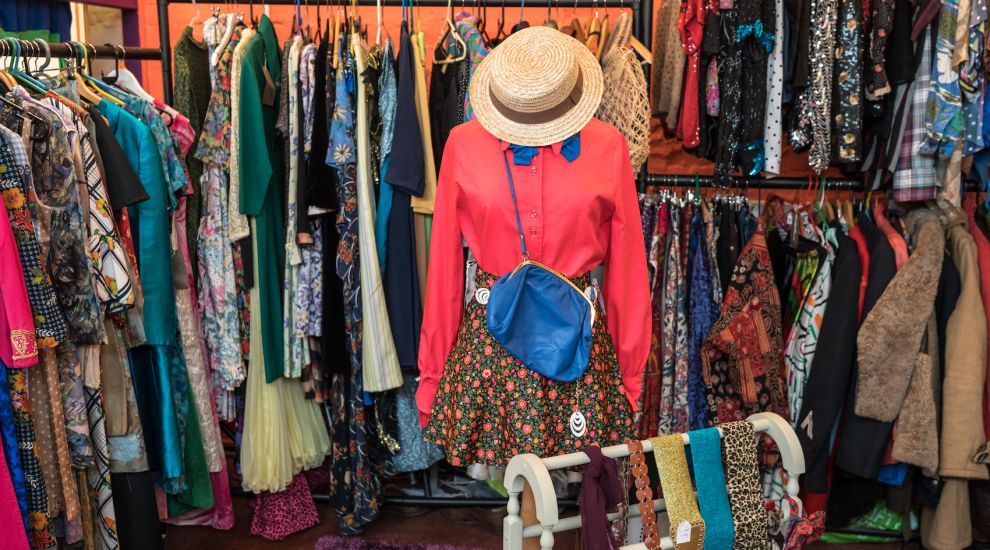
Pictured: A new vintage shop aiming to "promote individuality alongside sustainability" opened last year.
She continued: "All of Quirky Retro's owners grew up in Jersey, we know our island and what our customers want to see more of, plus we have the ability to personalise and tailor your shopping experience by helping you find the vintage article your are looking for and so much more!
"Small businesses bring a personal touch to shopping as they have a strong connection to the community, by buying from our store it means that you are not contributing to the fast fashion industry."
Quirky Retro Vintage sells an array of items from high fashion clothing to vintage books.
Each piece is a one-of-a-kind item hand-picked from a selection of vintage re-sellers across eras ranging from the 1920s to the 2000s.
Ethan added: “I’ve definitely noticed a growing interest in vintage and pre-loved items among islanders, which has been really encouraging.
"My inspiration for bringing this concept to the high street came from my passion for vintage pieces and a desire to create a space where people can appreciate their uniqueness."
Both stores emphasise quality over quantity, encouraging customers to rethink their relationship with fashion.
Grassroots initiatives like Kalina Le Marquand's 'Rag Trade' aim to make sustainable fashion accessible to all through monthly events where clothes and household items are shared for free, reducing waste and helping those in need.
“The initiative started as a way to reuse clothing and prevent people from going into debt,” explained Kalina.
“It’s also about helping the environment.
"Even brand-new items have been touched by countless hands before they reach you, so why not reuse what’s already out there?
"I know some people have said that they can't afford the second-hand shops because they’ve become more expensive.”
The concept of a Library of Things – where islanders can borrow items rather than buy them – has also been floated in Jersey.
Inspired by Plymouth’s “Borrow Don’t Buy” initiative, Jennifer Bridge, founder of Grouville Repair Café, has previously spoken about the feasibility of such a service locally.
The Plymouth Library of Things – which boasts over 700 'things' – describes itself as "like a normal library, but with things instead of books!".
The website explains: "Perhaps you’re doing some DIY and need a drill? Having friends over and want a projector to watch a film on? Fancy a spot of camping and need equipment? These are just a few of the things you can find at Borrow Don’t Buy!"
Sister2Sister: the new girl on the local secondhand scene
Cuckoo! Repair Café branches out into new town location
Repair Café for the East in the works
St. Brelade repair café to fix islanders a snack
Simon Langlois: Five things I LOVE about Jersey
FOCUS: Repair man aiming to fix Jersey's throwaway culture
Comments
Comments on this story express the views of the commentator only, not Bailiwick Publishing. We are unable to guarantee the accuracy of any of those comments.